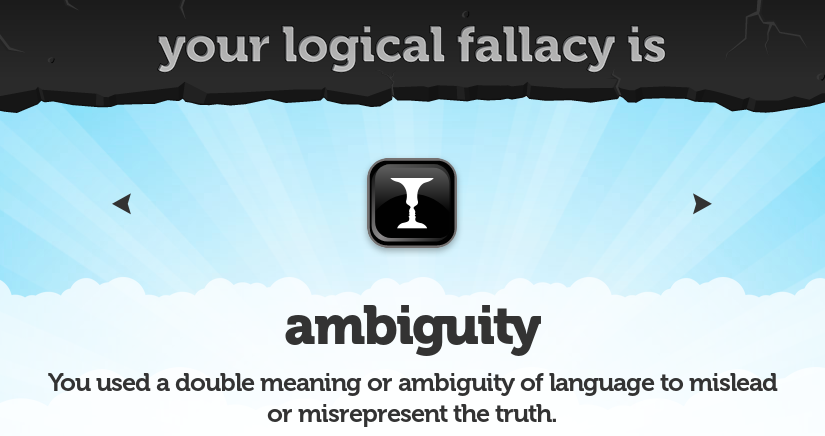Last Updated on 2022-07-08 by Joop Beris
I found an article with that very title on the site of Answers in Genesis. I had hopes that this might be an article with some substance but as I’ll explain here, it wasn’t. The article was written by Dr. Jason Lisle, an astrophysicist and Christian. There is also a page dedicated to him on RationalWiki. Clearly a man who would be able to construct a rational, well-argued case for the existence of God. So, what is the best argument for the existence of God?
Off to a good start
Dr. Lisle is off to a good start when he begins presenting a summary of often heard Christian apologetic arguments and shoots them all down by presenting a rational counter argument. For instance, he mentions the “First Cause” argument, the argument from design and even the Bible and allows the Christian argument to be defeated or at least countered. He does this in the form of a dialog between an atheist and a Christian.
Christian: “The Bible claims that God exists, and that it is His Word to us. Furthermore, what the Bible says must be true, since God cannot lie.”
Atheist: “That is a circular argument. Only if we knew in advance that God existed would it be reasonable to even consider the possibility that the Bible is His Word. If God does not exist—as I contend—then there is no reason to trust the Bible.”
Granted, he makes the atheist sound a little too pompous and cocky for my taste but so far, I think the style of Dr. Lisle is definitely unconventional for a Christian. He finishes this part of the article by rightly admitting that the arguments presented by the Christian in the conversation are unconvincing, weak and none of them prove that God exists (despite claiming that each argument is in fact true). I can’t argue with the good doctor there, since I also find them unconvincing and weak.
He then goes on to explain that the Christian was bound to lose the argument since he was doing apologetics wrong. According to Dr. Lisle, Christianity and atheism are two different world views and to change the mind of the atheist, it’s not the right approach to present him (or her) with different Christian arguments. Instead, one must argue on the level of worldviews in order to be effective. The Christian should have presented a kind of “big-picture argument” for the existence of God.
Inconsistent inconsistencies
First of all, I don’t agree with the doctor that Christianity and atheism are two different world views. Christianity might be called a world view but in my opinion, atheism is far too narrow in scope to call it a world view. It’s not a framework of ideas and beliefs but rather a position of disbelief concerning god(s). You don’t view the world through the lens of disbelief in a god or gods. Let’s be kind though and grant the doctor that when he says “atheist”, he means “rationalist” or “skeptic“.
Unfortunately, after a promising start, the article goes downhill rapidly. The doctor begins to explain that atheists aren’t really atheists. There’s no such thing as an atheist because in his “heart of hearts”, the atheist already knows that God exists. Atheists simply suppress their knowledge of God out of fear for his judgment. Of course this is all based on the Bible, Romans 1:18-20. So, the doctor argues, “we do not really need to give the atheist any more specific evidences for God’s existence”. What matters is exposing the inconsistency between what atheists say and how they act.
How do atheists act inconsistently, according to Dr. Lisle? He gives several examples of this supposed inconsistency and they’d actually be insulting if they weren’t so poor. In short:
But then [the professor of biology] goes home and kisses his wife and hugs his children, as if they were not simply chemical accidents, but valuable, irreplaceable persons deserving of respect and worthy of love.
In the first example, Dr. Lisle claims that a professor of biology, if he were truly an atheist, would be incapable of seeing his family as something other than chemical accidents. There would be no reason to be affectionate towards them.
In an atheistic, evolutionary universe where people are just animals, murder is no different than a lion killing an antelope.
The second example asserts that if someone were truly an atheist, he or she would not get upset by crime such as murder. It would simply be evolution in action when one person murders another person.
The concepts that human beings are valuable, are not simply animals, are not simply chemicals, have genuine freedom to make choices, are responsible for their actions, and are bound by a universal objective moral code all stem from a Christian worldview.
I should point out here that Dr. Lisle offers absolutely nothing in the way of justification for these claims. He simply states these as if they were fact. In doing so, he ignores that there might be other explanations for these perceived inconsistencies that don’t require someone to invoke God.
First, he completely ignores the fact that evolution offers a very good explanation of why humans feel love and it has absolutely nothing to do with being suppressed theists. Evolution theory also offers explanations for why species (it’s not just humans) exhibit altruistic behavior. There may even be an evolutionary basis for our morality. We may not be the only species that love and feel grief. Dr. Lisle completely fails to show why organisms which are the result of evolution through natural selection should be unable to care for each other or wouldn’t care for each other.
Secondly, Dr. Lisle is demonstrably wrong when he says that the idea that humans aren’t mere animals, our ideas about freedom and accountability and morality stem from a Christian world view. Thousands of years before the world had ever heard of Jesus, our ancestors were already burying their dead. They didn’t bury animals, only their own species, demonstrating they saw them as special and different. Many centuries before the world had ever heard of Jesus, people were composing moral and legal codes, like the Code of Hammurabi. The idea that morality comes from Christianity is simply a Christian fabrication. Ancient Greek philosophers like Aristotle already discussed the idea of free will in the fourth century BCE. There is no historic basis for the assertion by Dr. Lisle.
Illogical inconsistency
Next, Dr. Lisle claims that atheists display inconsistent behavior when they “try to be rational”. According to him, rationality invokes the Laws of Logic and these stem from God’s nature. They are a reflection of how God thinks. The doctor claims that “the atheist cannot account for [the] Laws of Logic”. He asks the question “How could there be immaterial, universal, invariant, abstract laws in a chance universe formed by a big bang?” The only reason that atheists can be logical and rational is because they are using God’s laws.
Christians on the other hand can account for the immaterial, universal, invariant and abstract Laws of Logic. These Laws depend on an immaterial, universal, invariant mind. There is only one mind that can fit that description and that is the mind of God.
The doctor concludes by saying that the biblical God must exist for there to be logic. The best proof for the existence of God is that without God, it would be impossible to prove anything at all. This is called the “transcendental argument for God” (TAG) and according to Dr. Lisle it is both devastating and conclusive.
UnTAGging
When I read the position of Dr. Lisle, I had the distinct impression that while it seems logical, there’s a trick being pulled. As it turns out, there are at least two serious flaws in the argument which cause it to evaporate upon closer inspection. The transcendental argument for God as Dr. Lisle makes it, may be rendered as follows:
- Immaterial, universal, invariant and abstract Laws of Logic exist
- A mind that is not immaterial, universal and invariant can not conceive of such laws
- Therefore, these Laws require an immaterial, universal and invariant mind
- There is only one mind that meets those criteria, the mind of God
- Therefore, God exists
As I said, there are problems with the argument. For one, even if TAG is a sound argument, it does not follow that it must be the biblical God that is the necessary precondition for the existence of logic. Of course Dr. Lisle would like that to be the case (and tries to prove it with quotes from the Bible) but one can not infer this from the argument. Using the transcendental argument for God, a Muslim can just as successfully argue for the existence of Allah. Even a deist could make his/her case using this argument. So the argument is not conclusive, it’s inconclusive.
Another and perhaps more subtle problem is much more devastating for TAG. It will require some explanation but once you see it, you’ll understand why the transcendental argument for the existence of God is a non-starter.
The problem is that the word “law” is ambiguous. It can refer to a descriptive law and it can refer to a prescriptive law.
An example of a prescriptive law would be traffic law: you must stop for a red light, you must not drive faster than ‘x’. A prescriptive law specifies how something has to operate.
An example of a descriptive law would be the Law of Gravity. The Law of Gravity doesn’t tell the planets how they should move, it describes how the planets move. The planets moved in the same way before Sir Isaac Newton formulated his Law of Gravity. Newton didn’t invent gravity, he discovered and described how gravity works.
We can successfully argue that logic isn’t given, it is discovered. Logic is a description of the way the world presents itself to us. For instance, the Law of Non-Contradiction states that two contradicting statements can not be true at the same time. An object can not be still and be moving at the same time. The same can be said for the Law of the Excluded Middle, which states that either a proposition is true or its negation is true, there is no middle ground. For instance, if I say “this object is moving”, that is either true or it is false. Finally, we have the Law of Identity which states that each thing is identical with itself. Simply put, each thing is composed of its own unique set of characteristic qualities or features. It is what it is, it’s not what it is not.
These are the three classical Laws of Logic and when you look at them, it’s hard to see anything divine in them. All three laws have their origin in ancient Greek philosophy. They describe how reality behaves. It’s important to remember that the Laws of Logic are descriptions of the way reality presents itself to us. They are descriptive laws. That means that the Laws of Logic themselves don’t actually exist! Just like the Law of Gravity describes how gravity works, doesn’t mean that there is actually such a thing as a Law of Gravity. Because these laws do not actually exist, means that they do not require there to be a lawgiver or a universal mind, much less a god of some sort. The Laws of Logic, just like the Law of Gravity is what we humans formulated to describe how reality presents itself, nothing more. With that in mind, let’s return to the transcendental argument for the existence of God.
Non-starter
Hopefully, you’ll see now why TAG is a non-starter. It falls apart at the first premise:
- Immaterial, universal, invariant and abstract Laws of Logic exist
- A mind that is not immaterial, universal and invariant can not conceive of such laws
- Therefore, these Laws require an immaterial, universal and invariant mind
- There is only one mind that meets those criteria, the mind of God
- Therefore, God exists
Only if the first four conditions are true, is the argument valid and true. As we have just seen though, the first condition is false! The Laws of Logic don’t need a god to account for their existence because they are not themselves real things. The Laws of Logic don’t exist. They are merely descriptions of how reality presents itself to us. If tomorrow, all humans would disappear from the world, the Laws of Logic would as well. Nothing would change in the world, of course. It’s just the descriptions of how the world behaves which would be lost. And with that, the entire TAG argument simply evaporates. The transcendental argument for God is not conclusive and devastating, it is entirely inconclusive and devastatingly easy to defeat once you see that it suffers from a critical ambiguity fallacy.
Conclusion
What is the best argument for the existence of God? According to Dr. Jason Lisle writing over on Answers in Genesis, it is the transcendental argument for the existence of God. Unfortunately, as we have just seen, this argument doesn’t hold up under closer scrutiny. TAG doesn’t prove that the god in question must be the God of the Bible and the God of the Bible is not a necessary precondition for the existence of the Laws of Logic, since they do not exist. I suggest that Dr. Lisle move the TAG argument up to the first paragraph of his article with all the other failed arguments, have it refuted by the atheist and then…well, back to the drawing board.
What is the best argument for the existence of God according to you?






So what do you think happens after death – just like a long sleep or before you were born? Just curious about it all.
If by “before you were born” you mean non-existence then yes, that’s what I think. From the perspective of the dead there’s no after death because there’s nothing left to experience anything.
I’m not an adherent of mind/body dualism. I don’t think we inhabit our bodies like a mind or soul that is separate from the body. I think we are our bodies.
[…] a negative is a foundation of logic. I’ve discussed the Law of Non-Contradiction here before. This is a fundamental law of logic which simply states […]